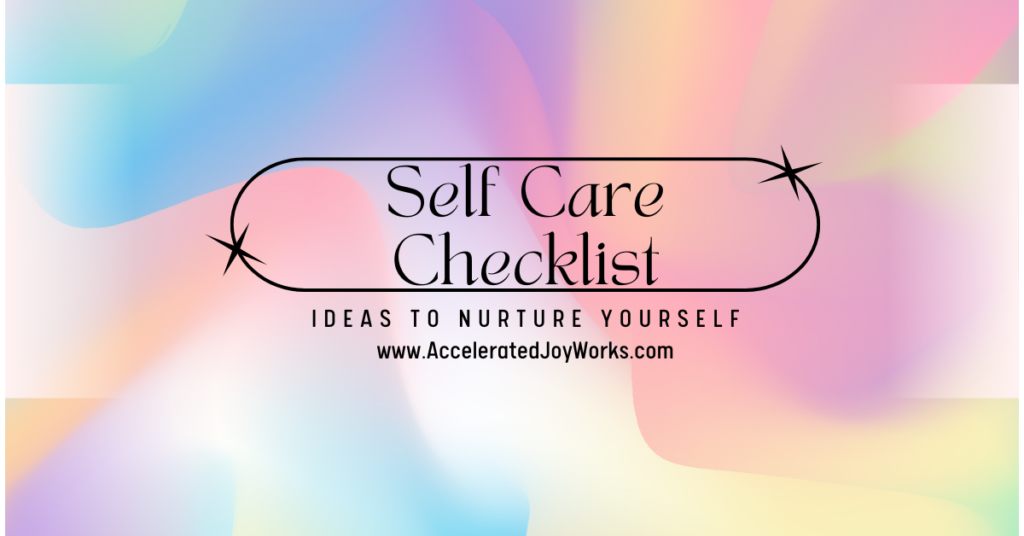We’ve all heard the saying, “You can’t pour from an empty cup,” but how often do we truly live by it? Healthy relationships require effort, patience, and care. If you’re constantly running on empty, it’s hard to show up fully for the people you care about.
What Is Self-Care?
Self-care is any deliberate activity that nurtures your physical, emotional, or mental well-being. It’s not about being selfish—it’s about sustaining yourself so you can give to others without feeling depleted. Self-care can be as simple as taking a walk, reading a book, or spending time with friends. It’s about intentionally creating moments to recharge and prioritize your well-being.
Why Is Self-Care Important?
Without self-care, stress and burnout can creep in, which can negatively affect your mood, energy levels, and relationships. When you neglect your own needs, resentment and frustration can build, making it harder to connect with those you love. On the other hand, regular self-care boosts your emotional resilience and fosters a sense of balance, enabling you to show up more fully and joyfully in your relationships.
How Self-Care Positively Affects Relationships
- Increased Patience: When you’re well-rested and recharged, you’re better equipped to handle challenges with grace.
- Better Communication: A calm and centered mind makes it easier to express your needs and listen to your partner.
- Enhanced Intimacy: Taking care of yourself fosters confidence and reduces stress, which can deepen emotional and physical connection.
The Negative Impact of Ignoring Self-Care
- Irritability and Frustration: When you’re running on empty, small issues can feel overwhelming.
- Emotional Distance: Neglecting your needs can lead to feelings of resentment, creating a divide between you and your partner.
- Burnout: Chronic neglect of self-care can result in physical and emotional exhaustion, making it difficult to engage in healthy, fulfilling relationships.
Try This: Schedule regular self-care rituals, even if it’s just 10 minutes a day. Maybe it’s a morning meditation, an evening walk, or a weekly “date” with yourself. Consistency is key, and those small acts add up over time.
Take It a Step Further: Think about areas in your life where you might be over committing. Are you saying “yes” to things that drain you? Practice setting boundaries that protect your time and energy. When you honor your own needs, you’re better equipped to give generously to others—and to do so joyfully.
Need more help? Consider our Complimentary Self-Care Check list. Download Here
